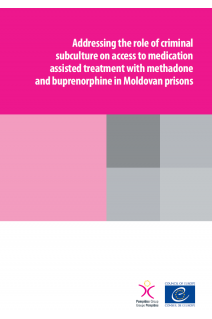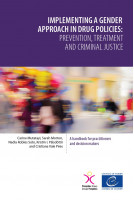



Criminal subculture has gained traction as an important factor shaping drug use and addiction treatment throughout Eastern European and Central Asian prisons. This report commissioned by the Pompidou Group of the Council of Europe explores the impact of prisoner subculture on the implementation of methadone treatment – an evidence-based treatment for opioid use disorder – in Moldovan prisons where it has been available for over 15 years but uptake remains low.
A research team from Yale University School of Medicine conducted a qualitative study in two prisons near Chisinau to explore how criminal subculture affects the way that people interact with methadone treatment. They conclude that methadone delivery gets tied up with the power struggles of the informal criminal subculture and the formal prison administration where methadone is equated with the values of the latter thereby repelling the former. Those who enroll in methadone treatment lose their standing in the hierarchy which equates to a loss of social and material worth. The report suggests implementation strategies – primarily ways to distance methadone treatment from the formal prison administration – to improve its appeal, uptake, and treatment outcomes.



Criminal subculture has gained traction as an important factor shaping drug use and addiction treatment throughout Eastern European and Central Asian prisons. This report commissioned by the Pompidou Group of the Council of Europe explores the impact of prisoner subculture on the implementation of methadone treatment – an evidence-based treatment for opioid use disorder – in Moldovan prisons where it has been available for over 15 years but uptake remains low.
A research team from Yale University School of Medicine conducted a qualitative study in two prisons near Chisinau to explore how criminal subculture affects the way that people interact with methadone treatment. They conclude that methadone delivery gets tied up with the power struggles of the informal criminal subculture and the formal prison administration where methadone is equated with the values of the latter thereby repelling the former. Those who enroll in methadone treatment lose their standing in the hierarchy which equates to a loss of social and material worth. The report suggests implementation strategies – primarily ways to distance methadone treatment from the formal prison administration – to improve its appeal, uptake, and treatment outcomes.
